Guiliano Global Fellows: Spreading Care Around the World
Since 2014, more than 200 New York Tech students have benefited from the opportunity to traverse the globe in the name of academic research thanks to the Edward Guiliano Global Fellowship program. This spring, seven more students received this prestigious scholarship.
For more than 10 years, the fellowship has enabled young scholars to take high-level research trips, linking their academic studies with a broader perspective of the world around them. They have participated in experiential-based learning opportunities across the United States and in countries like Nepal, Mongolia, Uganda, Thailand, Eswatini, and more.
As part of the fellowship requirements, this cohort journeyed at least 200 miles from their home or New York Tech campus—staying as “local” as Montana and trekking as far as Bangladesh—supported by scholarships between $750 and $5,000.
Three students, Aminah Sarowar, Molly Helie, and Md Jobair Hossain Faruk, will complete their research trips at the end of the spring semester, but New York Tech News spoke with a few, all graduate students, who have already returned to learn about their transformative experiences.
Where Music Meets Mental Health
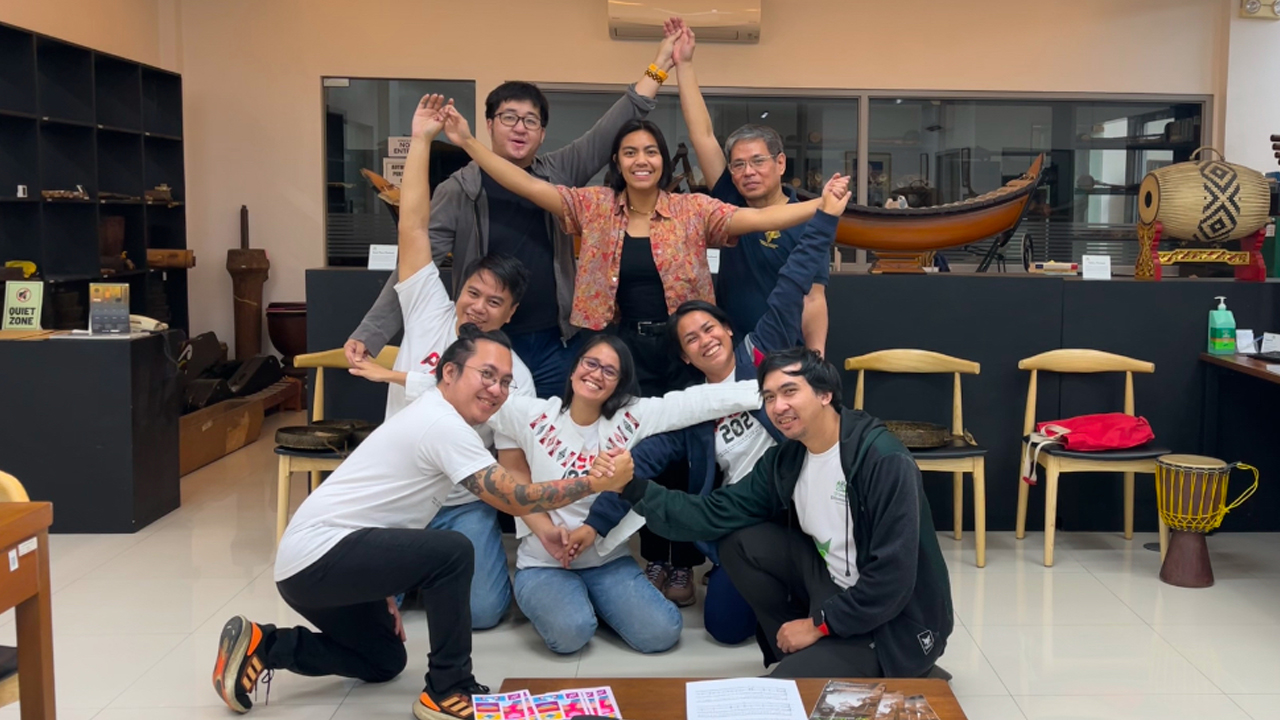
For two weeks in January, osteopathic medicine student Jeri Ann Ramilo (they/she) returned home to the Philippines to conduct their research, “Creating Culturally Tailored Mental Health Music Therapy Treatment in Collaboration with the University of the Philippines Center for Ethnomusicology,” in Manila. A nation that tends to place a stigma on health treatments like therapy, mental health issues are often not prioritized in the Philippines. Ramilo’s project goals included gathering information and discovering methods to tailor treatment to acknowledge someone’s cultural background, specifically in a community health setting, as well as exploring how practicing cultural music and instrument skills can alleviate mental health concerns and decrease stigmas.
“My interest in guitar, songwriting, and music production, combined with my interest in practicing medicine in a way that is creative, empathetic, patient-centered, and evidence-based, drove me to be curious about why music is neurally and emotionally protective,” Ramilo says. After more deeply understanding Filipino indigenous culture, traditional music, and music therapy, she created several background tracks and video tutorials to guide the process of creating music therapy for a Filipino patient. Ramilo’s work expands on preventive medicine in the Philippines and aims to inspire locals to cultivate stronger relationships within their community and with healthcare providers through music.
After more deeply understanding Filipino indigenous culture, traditional music, and music therapy, she created several background tracks and video tutorials to guide the process of creating music therapy for a Filipino patient. Ramilo’s work expands on preventive medicine in the Philippines and aims to inspire locals to cultivate stronger relationships within their community and with healthcare providers through music.
The Batwa of Uganda
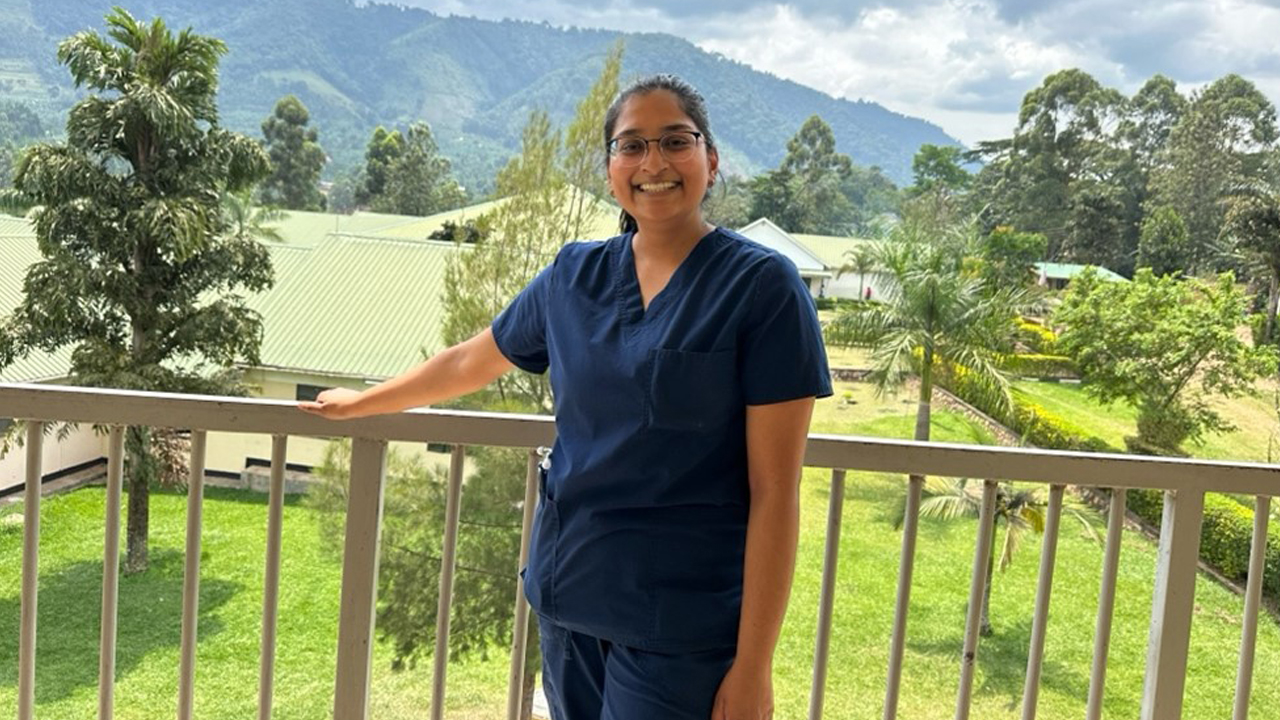
In February, osteopathic medicine student Hira Iftikhar spent two weeks in Buhoma, Uganda, for her project, “The Effects of Socioeconomic Status on Common Chronic Diseases Experienced by the Batwa People of Uganda.” Iftikhar says the indigenous Batwa, displaced decades ago from UNESCO World Heritage Site Bwindi Impenetrable Forest National Park, face high rates of conditions like HIV, tuberculosis, upper respiratory infections, and alcoholism. Despite being integrated into communities that experience higher rates of diabetes and hypertension, the Batwa do not have many such cases. Iftikhar’s research sought to understand this discrepancy.
Through interviews with Batwa locals, as well as doctors and community health officers at Bwindi Community Hospital, she learned that socioeconomic status and receiving no compensation after their forced eviction from their homes caused the Batwa to face extreme poverty. Many of their homes are poorly ventilated, overpacked with family members, and have high levels of smoke exposure either from kitchen fires or smokers residing in the household.
For the duration of her stay, Iftikhar helped with daily activities at the hospital like administering vaccinations, conducting screenings, and other everyday tasks. She also participated in a fundraiser resulting in enough money for a 4-year-old boy to see a pediatric prosthetist and cover the cost of his prosthesis for the next three years. “This experience reinforced my passion for advocating for those in need of medical care and ensuring that no one is left without the resources they deserve,” she says.
Traditional Thai Architecture and Climate Change
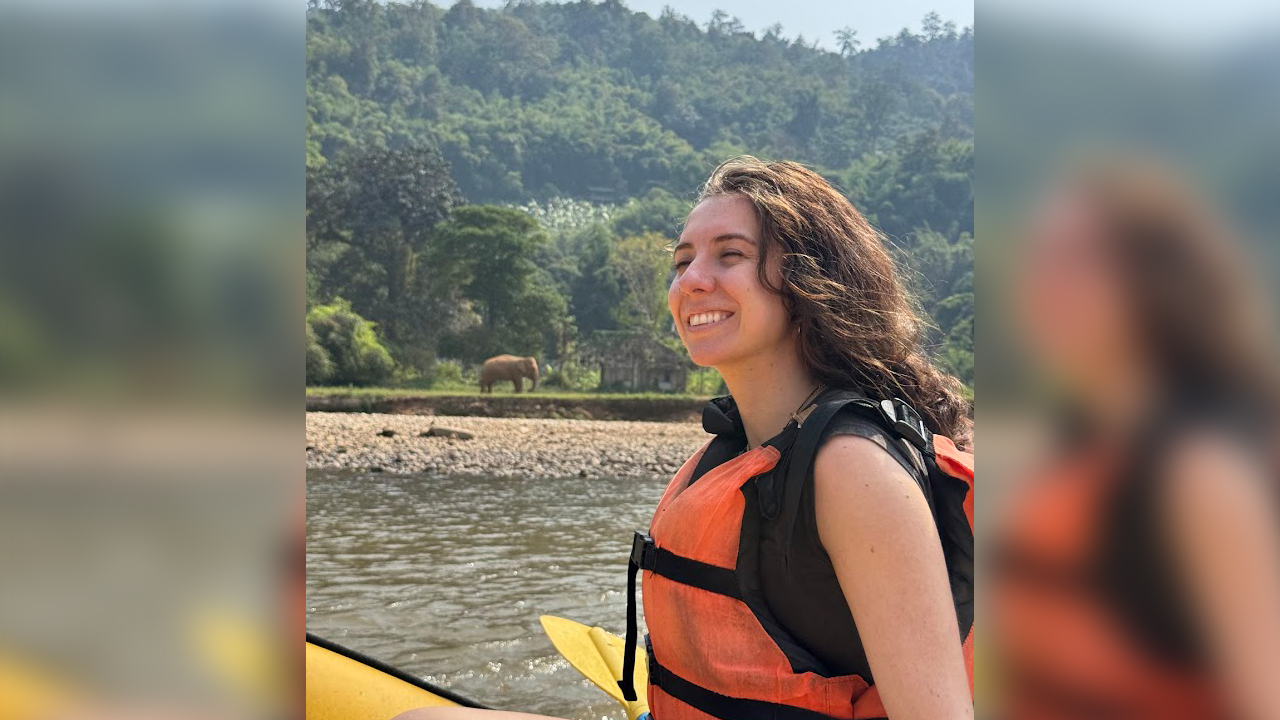
Emily Sturges, who is studying health and design, stayed in Thailand for three and a half weeks in December and January for her research, “Revitalizing Vernacular Architecture for Climate Resilience.” Vernacular architecture refers to design elements based on local needs and reflecting the local environment and cultural practices. Sturges’ primary goal was to explore how traditional Thai houses are better adapted to address flooding, pollution, and rising temperatures than modern developments in Thailand.
To achieve this, she conducted site visits in rural and rapidly urbanizing areas to document examples of flood-resilient and climate-responsive architecture in varying economic and ecological climates. She also analyzed traditional construction techniques used to elevate buildings, manage water flow, and reduce heat; interviewed local experts about how environmental challenges affect daily life; and documented sustainable materials and climate-resilient design principles local communities use to mitigate the negative impacts of climate change.
Despite severe flooding, rapid urbanization, and rising temperatures, Thailand has a rich history of vernacular architecture that has long adapted to these environmental conditions. “The idea that traditional design solutions can be combined with modern sustainable practices to create climate-resilient and health-promoting environments in such a dense, rapidly changing urban context deeply resonated with me,” Sturges says.
Improving Pediatric Care in Nepal
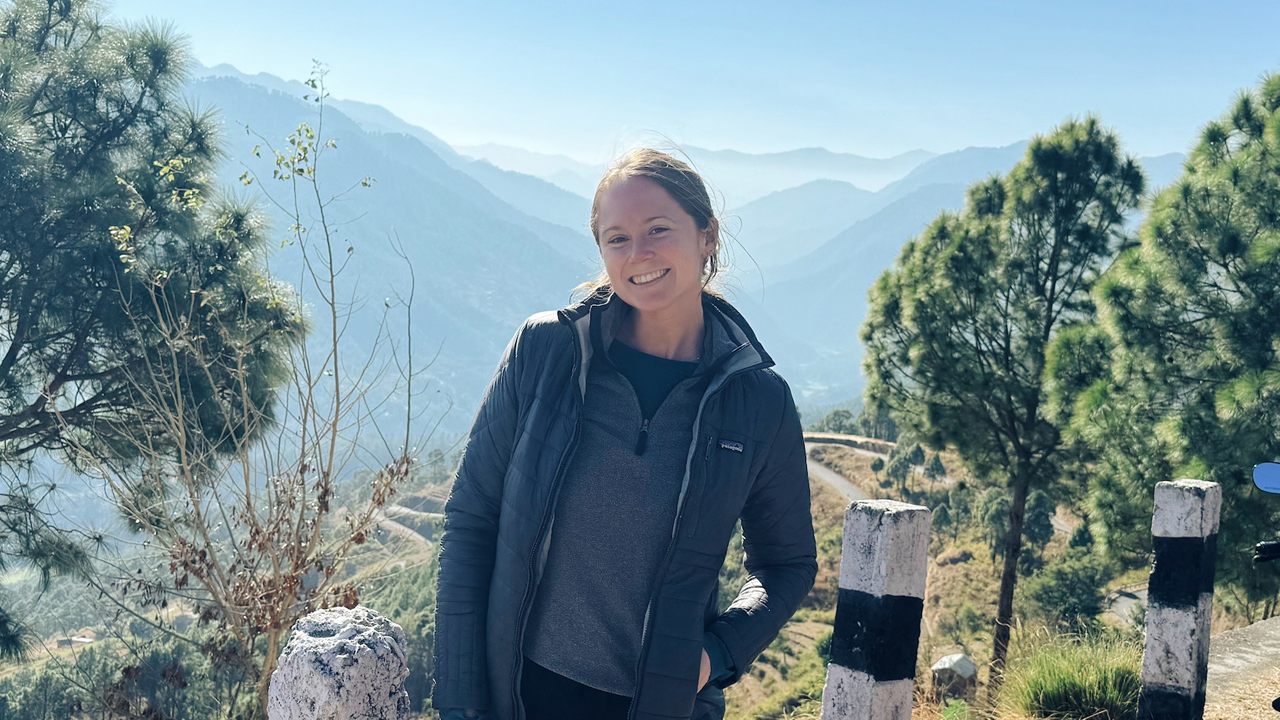
For four weeks in January and February, public health student Loryn Bucci visited Bayalpata, Nepal, where she conducted her research “Addressing Pediatric Emergency Care in Rural Nepal.” Set in a resource-limited setting, Bayalpata Hospital has significant gaps in pediatric emergency care and serves a vulnerable child population. With the hospital’s lack of a dedicated children’s emergency system, there are delays in treatment and preventable complications. Committed to global health and children’s emergency medicine, Bucci sought to improve this area of the hospital’s healthcare by developing and implementing updated protocols, training first responders, and identifying gaps in care.
She successfully created 10 new pediatric emergency protocols tailored to the hospital’s resources and patient needs, covering conditions like head trauma, malnutrition, and pediatric fractures. Working closely with hospital staff and physicians, Bucci ensured these new protocols were practical and aligned with existing workflows. She also introduced a new pulse oximeter specifically designed to read oxygen levels in newborns and small children, allowing the healthcare team to monitor oxygen levels in infants accurately for the first time.
“This work was deeply meaningful,” she says. “I wanted to help bridge the gap in care and empower local providers with the knowledge and tools to manage pediatric emergencies more effectively.”
Future Projects
Ramilo will participate in a second trip in early April when she travels to Albuquerque, N.M., for the 46th Annual Meeting of the Society for the Study of Psychiatry and Culture to present their poster, “A Scoping Review on the Use, Methods, and Efficacy of Culturally Tailored Music Therapy,” establish further collaborative research connections and garner more support to test therapeutic music intervention programs. Later that month, Ramilo will head to Denver, Colo., to attend the American Society for Addiction Medicine’s Annual Conference.
In May, Sarowar, a life sciences/osteopathic medicine (B.S./D.O.) student, and Helie, an osteopathic medicine student, will address disparities and improve healthcare in the communities of Poplar and Fort Peck in Montana when they travel for their research, “Building a Health Education Continuum: Empowering Students at the Fort Peck Indian Reservation in Montana to Help Their Community.”
Computer science Ph.D. student Hossain Faruk will travel in May to Dhaka, Bangladesh, for his project, “Empowering Underprivileged Students in Bangladesh: Raising Awareness, Supporting Health and Well-Being, and Opening Pathways to Higher Education.” Through hands-on engagement, mentorship, and community collaboration, he hopes to create a sustainable and inspiring pathway to students’ academic success.
Students are selected for the Edward Guiliano Global Fellowship Program based on their applications, including the following metrics: the project’s purpose, goals, and methods; creativity; transformative potential; intended effect; and budget proposal.
The next cohort of selected students will complete their travels between May and December 2025. Interested students may submit their project proposal by April 18.
More News
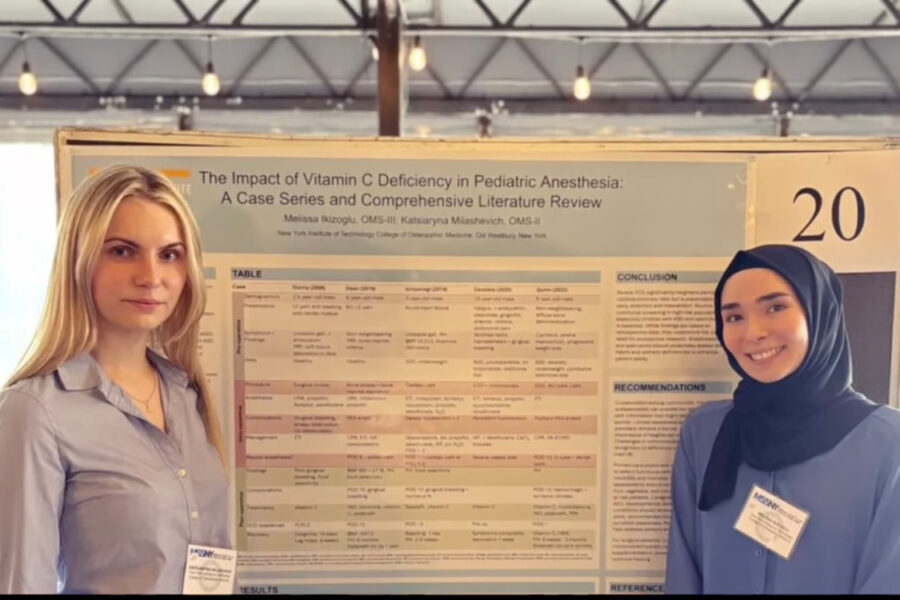
Student Researchers Shine at Medical Symposium
Future physicians earned top recognition at a poster competition held by the Medical Society of the State of New York.
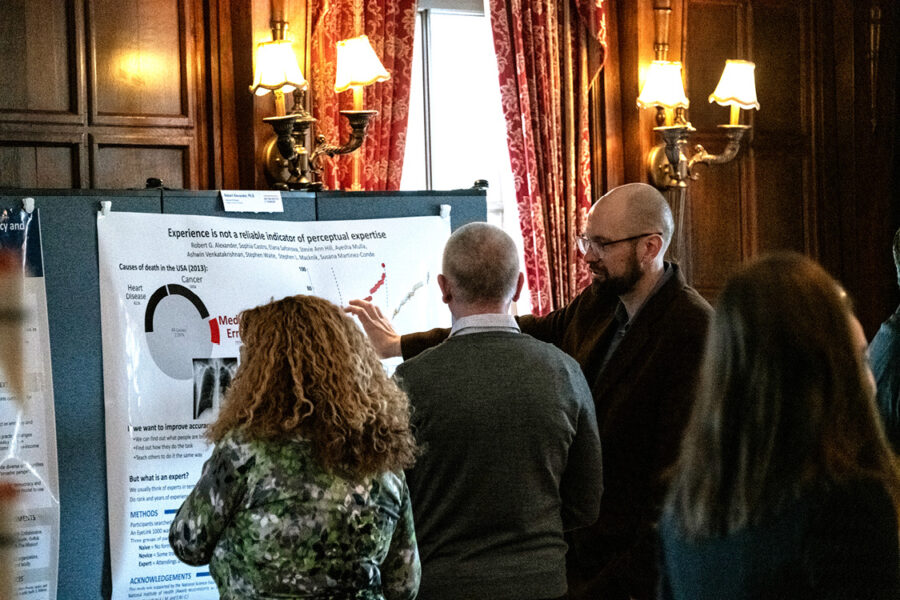
Celebrating Faculty Scholars
Exhibits at the Faculty Scholars Reception showcased faculty and staff’s scholarly and creative achievements during the previous calendar year.
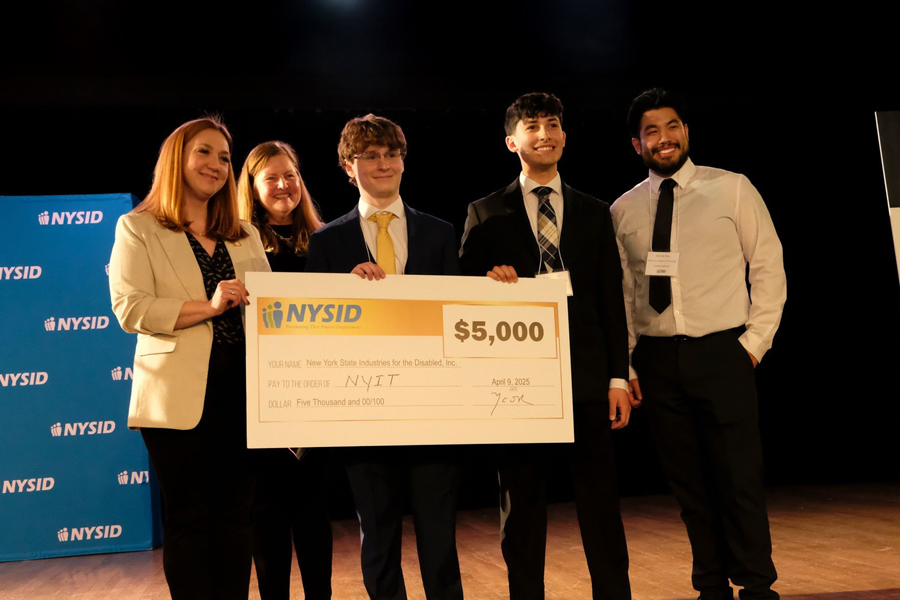
Engineering Students Receive Prize at CREATE Symposium
College of Engineering and Computing Sciences students took home a third-place win for their invention designed to assist those with disabilities in their everyday work tasks.
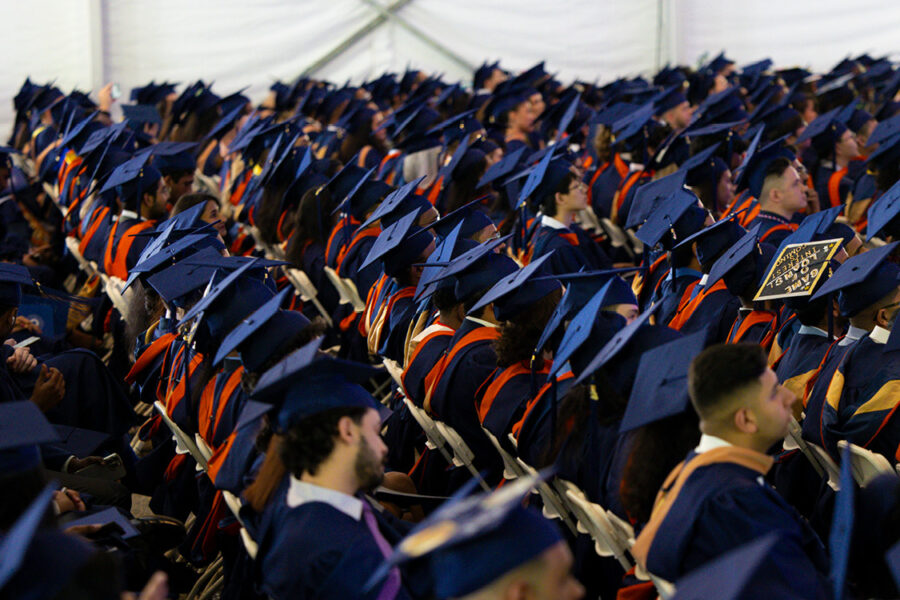
Leaders in Medicine to be Honored at 2025 Commencement
Two physicians whose contributions to osteopathic medicine have advanced the profession and profoundly impacted the lives of countless others will receive honorary degrees on May 18.
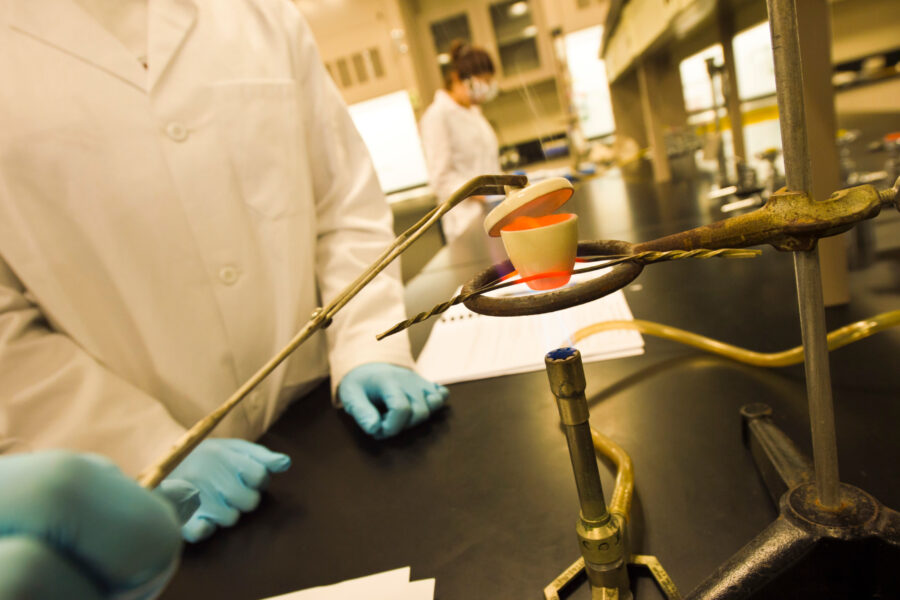
New Chemistry Offering Joins Ranks of Ph.D. Programs
A Ph.D. in Chemistry will launch in fall 2025, marking the latest entry in the ranks of Ph.D. programs offered at the university.
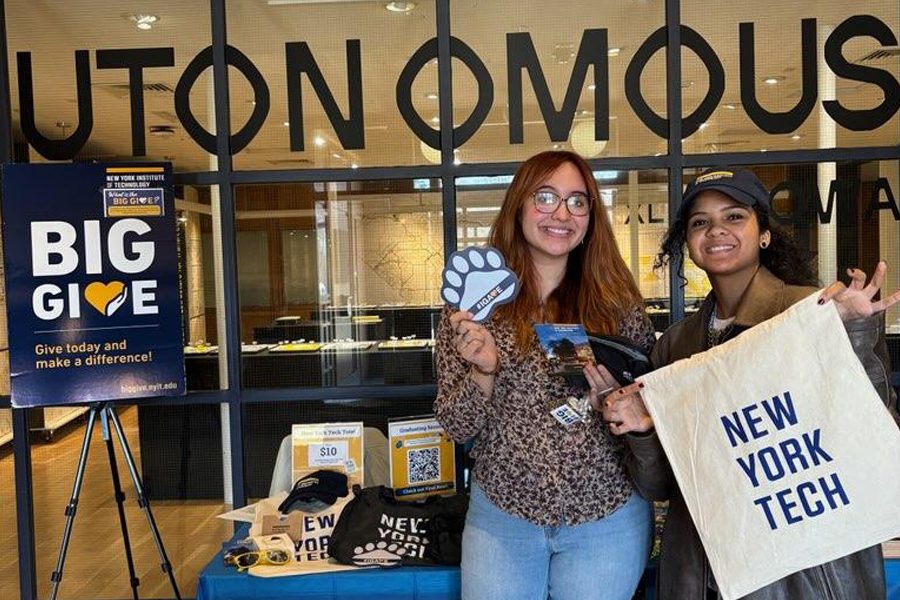
Seven Years of the Big Give
The New York Tech community celebrated in a big way, bringing in $421,596 to help support student experiences across the university’s campuses.